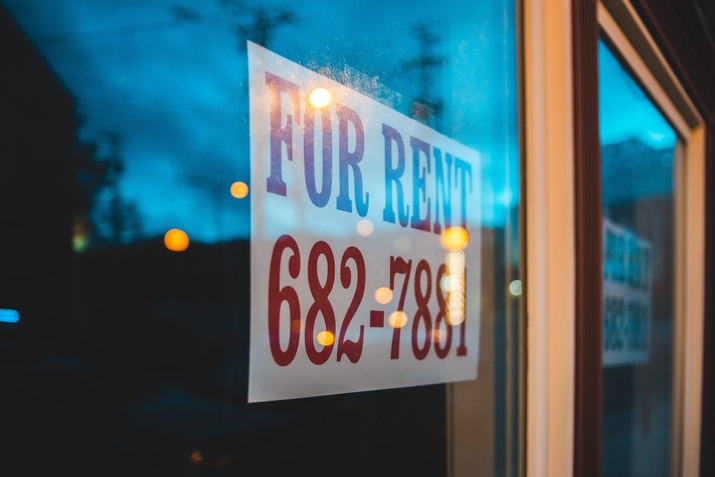First-Time Landlords: 9 Tips for Your Rental Business | Gabi

Earning extra income from renting out your property is appealing but is everything so pleasant in the rental process? Doing it for the first time, finding good renters, and following local laws may seem to be difficult. Here are nine first-time landlord tips if you want to be a good one and take advantage of rental income:
1. Find and prepare a rental property
The first step to becoming a landlord is buying a property that you may be renting out to potential tenants. You can do it on your own or get a real estate agent’s advice. Make sure that this place is in good condition, and has all of the basic amenities.
You should also examine if everything is working properly and carry out thorough maintenance before a new tenant moves in. Check the plumbing system, air vents, pipes, smoke detectors, and electricity. If you take good care of making your place safe to live in, you’ll avoid legal claims from your tenants.
The more you invest in your property, the higher rent you may charge. Think about what could be attractive for prospective tenants. Make sure your property is neat and tidy. Redecorate and refurbish it if you have enough budget (you can use your DIY skills if you have any). Is there a possibility to buy a parking space or a garage?
Consider what might be useful and for what you can charge higher rent payments. If you invest before occupancy by tenants, you’ll earn more in the long run.
2. Your rental property is a business
Your rental property is a business that requires legal compliance with federal, state, and local laws. The more you prepare beforehand, the better. Instead of learning rental business rules by trial and error, you should spend some time gathering useful tips and expanding your knowledge in this area. It will protect you from making bad decisions that may cost you a lot of unnecessary nerves, and money.
Implement a strategy as if you were a real management company and research the available legal and compliance materials to see what’s required. As a first-time landlord, it’s wise to get tips about these responsibilities and duties before deciding to undertake this task.
Also, you should read about landlord and tenant rights, and check what would be required from you if you decide to rent out your rental property. First, make sure your lease is legal in your state (here’s a useful map for landlord/tenants laws in your state). Then, learn more about other legal requirements like housing laws, licenses, and property inspections. Be sure to get familiar with tenant notices and security deposit rules, as well.If you don’t have enough time and can’t fully commit to managing your property, consider hiring a property manager. Property managers take care of all necessary responsibilities like collecting rent, advertising your property and available units, and finding the right tenants.
3. Buy landlord insurance
Accidents happen, that’s for sure. As a landlord, you’re responsible for your property so it’s wise to purchase landlord insurance. It will cover you against legal claims or bearing the costs of unexpected incidents, such as a natural disaster, or a burst pipe.
If you need help getting affordable landlord insurance, sign up on Gabi and get a free quote today! Okay, on to more landlord tips.
4. Choose prospective tenants wisely and require an application
Finding reliable tenants is one of the hardest parts of the whole process so you have to approach it seriously. After all, you want to rent out your property to good people and avoid late fees, don’t you?
Tenant screening is one of the ways to check if potential tenants can be trusted. You can use a tenant screening report that will help you perform a background check. After that, ask for a written rental application that will tell you more about the prospective renters. What should you focus on? Find out if they are able to pay the rent, have a decent rental history, and check their credit report. Also, examine if they have any criminal or eviction history. Don’t ignore any red flags as they may result in unnecessary problems later.
5. Set up the rules and write a lease agreement
Think about the rules that would be obligatory in your apartment and create a meticulously written lease agreement. Written documents are more effective and, once signed by both parties, will protect you in legal situations. Rules are the most glamorous of landlord tips but lifesavers!
While preparing a lease agreement, consider the following:
- How and how often would you like to collect rent payments?
- Would you charge late payment fees?
- How much would a security deposit be? How will a renter receive it back?
- Would pets be allowed?
- Are property alterations (like painting the walls) possible?
- Do you approve of subletting your place?
- Who will bear the costs of repairs and maintenance?
- Set up your ‘office hours’ – state when your tenants can reach out to you if you want to avoid receiving calls during weekends.
- How early should your tenants inform you before they move out of your property?
Also, remember to include any rules or regulations of the homeowner’s association to which your property belongs. It can, for example, apply to quiet hours and maintenance of common areas.
6. Keep records of everything
Keep digital records of each document, receipt, and agreement pertaining to your property. It will protect you in case your great tenants start being problematic or want to report a claim against you.
Save any evidence of your communication and create a digital paper trail, i.e. e-mails, and any transactions on your computer so you have them in one place. Better safe than sorry.
7. Require renters insurance
Landlord insurance doesn’t protect the personal belongings of your tenants. To be covered in case of any accidents or natural disasters, they need to purchase renters insurance which is usually inexpensive. If your property is leased by roommates, each of them needs a separate renters insurance policy.
Moreover, renters insurance supplies additional liability protection to you as the landlord, so you can include such a requirement in your lease agreement. Enough about the renter- more landlord tips ahead!
8. Learn about property maintenance
Before property leasing, you need to decide who will bear the responsibility of maintenance. If it would be upon the renters, make sure to include such a statement in your rental agreement. You can also send reminders to make sure your tenants regularly check up on the smoke detector and other things that require routine maintenance.
If you will be the one responsible for the safety, make sure to have numbers to plumber and locksmith handy to solve any unexpected maintenance requests that may come up.
9. How to determine what to charge for rent
For the last of the landlord tips: Setting a fair rental price is one of the most important factors when it comes to attracting good tenants. There’s a rule which says you can charge a rent that amounts to around 1% of your property’s market value. You can set a higher price if your property is located in a nice neighborhood, has some great amenities, or includes extras like a parking space or a garage.
So how do you set the most appropriate price? You need to take certain factors into consideration, including:
- Location and its pricing trends
- Size of your property
- Average salaries in your area
- Rental term – if you find tenants who opt for longer lease, you can adjust the price to avoid having your property unoccupied and bearing the cost of the rent yourself
- Add-ons- if your property comes with extras, you can set a higher price. Research the rental market and check prices of similar properties in your neighborhood. It will help you assess how much you can charge for the rent. This includes things like parking, garage, basement, or high-level amenities.
- Furniture – ready-to-live apartments are usually a bit more expensive than the unfurnished ones.
You can use this tool or this one that will help you determine how much you can charge for the monthly rental of your property. Were these first-time landlord tips helpful? Let us know on Facebook or Instagram!









